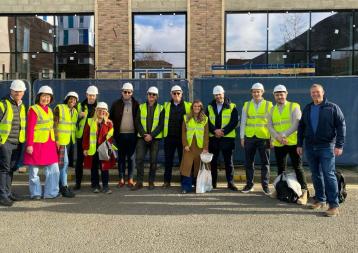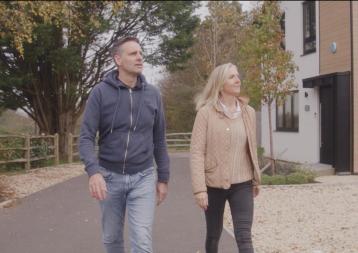Article: Why rising planning fees will hit SME developers hardest
February 28
3 min read
Nobody sheds a tear for developers, but new planning fees will likely see housebuilding slow further and impact economic prospects
There’s no doubt that the past year has been one of the most challenging for UK housebuilders, with higher interest rates severely restricting consumer confidence and demand for new homes. Now, the sector has yet another challenge to overcome – in the form of increased planning fees.
Following amendments to the Town & Country Planning Regulations 2023 by the Department for Levelling Up, Housing & Communities, planning fees in each local authority in England rose by 25%, and by 35% for major developments in December.
What’s more, further amendments will see an annual increase in application fees, linked to inflation (capped at 10%) introduced from April 2025. At the same time, the Planning Guarantee for non-major planning applications is set to be shortened from 26 weeks to 16 weeks.
Extra pressure
While it is no doubt positive that the delays in planning have been acknowledged at a national political level, the significant uplift in fees – at a time when the sector is already under enormous strain – will have a hugely detrimental effect.
The latest data from the National House Building Council shows that new home registrations dropped by 53% in the third quarter of 2023, compared with the same period in 2022. This marks the lowest number since the second quarter of 2020, when Covid-19 brought the industry to a virtual standstill.

In recent months we have seen three of the biggest players in the UK’s brick industry announce factory closures, as major developers drastically cut back on investment. This comes at a time when the need for new homes to be built is perhaps at the highest it has ever been.
Unfortunately, the impact that housebuilding has on the overall economy is all-too frequently overlooked. Not only does it create jobs – both directly and through its supply chains – but there are huge benefits to communities at a social level, with the provision of affordable housing and improvements to local services, such as education.
“The significant uplift in fees – at a time when the sector is already under enormous strain – will have a hugely detrimental effect”
To add insult to injury for housebuilders, the increase in planning application fees will not be ring-fenced. This means there is no guarantee that the extra cost for developers will actually go towards resolving capacity problems and providing the much-needed resource to the planning departments, enabling local authorities to tackle the backlog in applications. Instead, the extra revenue may go towards other front-line council services.
Barriers to Growth
Navigating an overburdened and cumbersome planning system has long been one of the biggest problems for housebuilders. This is reflected in the SME State of Play report, the most comprehensive survey of SME housebuilders in the UK, which is produced by Close Brothers Property Finance, alongside the Home Builders Federation and builders’ merchant Travis Perkins.
In the four years since we launched the report, each consecutive year an average 91% of SME housebuilders have said that “delays in securing planning permission/discharging conditions” are a major barrier to growth for their business. This is followed in second place by “lack of resources in local authority planning departments”, which is cited by an average 86% of SME housebuilders.
“SMEs are having to pay out more money, but are not seeing any improvements in the time taken to approve applications”
It is worth noting that although delays in the planning system are a problem for housebuilders of all sizes, small and medium businesses are disproportionately affected. Whereas large housebuilders will typically have multiple projects in development at any given time, SMEs often have all of their capital tied up in just one or two projects. As a result, delays mean that developments grind to a halt and the viability of the site may be compromised.
The State of Play report also shows that the cost of obtaining implementable planning permission over the past three years has risen, with almost half of respondents (46%) saying they had experienced a rise of more than 30%, with a further 45% claiming costs had risen by between 11% and 30%. SMEs are having to pay out more money, but are not seeing any improvements in the time taken to approve applications.
Joined-up thinking required
We have seen the recent news that the government has announced changes to the national planning policy, in support of brownfield developments. While this is undoubtably helpful, I wonder if this is enough of a joined-up way of thinking, to support the overall housing shortfall. With an election expected to take place towards the end of the year, we need to understand how the parties plan to address this in their manifestos.
Few would deny that there is an urgent need for greater resources within local authority planning departments. However, by neglecting to ensure that the additional funds are ring-fenced, the likelihood of material improvements being made to the planning system any time soon is remote.
I hope, for the sake of SME housebuilders and for the economy, that I am wrong on that point.






